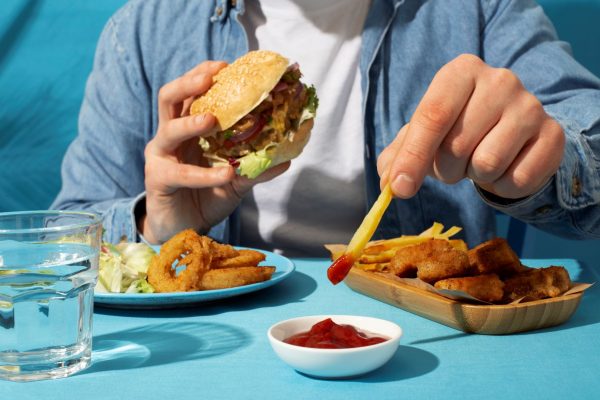There are plenty of places to lay blame for today’s epidemic of obesity and diabetes. And most of them boil down to lifestyle choices.
However, there is one thing that I believe is greatly adding fuel to the problem. It’s a common decision that millions of people make every day in the name of good health.
It’s the conscious choice to opt for artificially sweetened foods and beverages.
Now, a lot of people don’t believe me when I share this information with them. And I completely understand their disbelief. After all, marketers for these fake sugars have done a great job of making it sound like they are the cure-all for obesity and metabolic issues.
Yet, despite all of these marketing tactics, artificial sweeteners don’t aid weight loss. Nor do they protect against diabetes. Rather, they actually contribute to a larger waistline, increased weight gain and a higher incidence of obesity.
To top it off, these no- and low-calorie sweeteners also alter glucose response. This, of course, increases your risk of metabolic syndrome and type 2 diabetes.
Let me explain.
Sucralose Makes You Think You’re HUNGRY!
A new study in Nature Metabolism tested the use of sucralose in a group of 75 people. Some of these folks were healthy weight. Some were overweight. Others were obese.
Over several sessions, these people drank either sucralose-sweetened water, sugar-sweetened water or plain water.
Various metabolic data was collected at 10, 35 and 120 minutes after drinking the water.
One of those data points was hypothalamic activity. This is the region in the brain that regulates appetite, cravings and weight.
Well, after drinking the sucralose-sweetened water, the people showed increased blood flow to the hypothalamus, thus increasing appetite and cravings.
Those who consumed the plain water or the sugar water had no such increase. And at the two-hour mark, they reported significantly lower hunger levels than after drinking the sucralose water.
Now, here’s the thing about sucralose. It’s intensely sweet – about 600 times sweeter than sugar. But you don’t hear much about exactly WHAT it is.
It’s the chlorination of sucrose (sugar). Simply put, I guess you could call it chlorinated sugar. And that’s a big problem for your thyroid.
Why?
Well, if you look at the periodic table, you’ll see that chlorine is right there alongside fluorine, bromide and iodine. Thus, chlorinated sucrose is going to interfere with iodine’s attempts to attach to the protein molecule thyroglobulin to become thyroid hormone.
So if you are drinking or eating foods and beverages with sucralose, you’re dropping your thyroid function. This, in turn, leads to weight gain. When you combine low thyroid together with increased hypothalamic activity (which makes you hungrier) you’re just asking to pack on the pounds.
Studies DO NOT SUPPORT The Use of Artificial Sweeteners
This isn’t the first study that links artificial sweeteners (of any kind) with increased weight gain, greater waist circumference, a higher incidence of obesity and an elevated risk of developing type 2 diabetes.
In fact, the World Health Organization issued an advisory in 2023 recommending that people avoid these sugar substitutes.
In the advisory they state: “The recommendation is based on the findings of a systematic review of the available evidence which suggests that use of NSS (non-sugar sweeteners) does not confer any long-term benefit in reducing body fat in adults or children. Results of the review also suggest that there may be potential undesirable effects from long-term use of NSS, such as an increased risk of type 2 diabetes, cardiovascular diseases, and mortality in adults.”
I’ve alerted you to the many dangers associated with artificial sweeteners in the past. To learn more, check out this article from June 2024.
SOURCES:
Chakravartti SP, Jann K, Veit R, Liu H, Yunker AG, Angelo B, Monterosso JR, Xiang AH, Kullmann S, Page KA. Non-caloric sweetener effects on brain appetite regulation in individuals across varying body weights. Nat Metab. 2025 Mar;7(3):574-585.
Fagherazzi G, Gusto G, Affret A, Mancini FR, Dow C, Balkau B, Clavel-Chapelon F, Bonnet F, Boutron-Ruault MC. Chronic Consumption of Artificial Sweetener in Packets or Tablets and Type 2 Diabetes Risk: Evidence from the E3N-European Prospective Investigation into Cancer and Nutrition Study. Ann Nutr Metab. 2017;70(1):51-58.
WHO advises not to use non-sugar sweeteners for weight control in newly released guideline. World Health Organization. News Release. May 2023.



